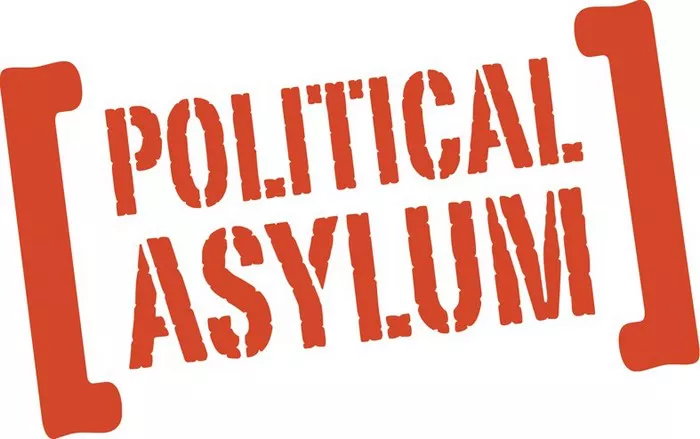In an increasingly interconnected world, political turmoil and persecution remain pervasive challenges faced by individuals across the globe. For those fleeing persecution in their home countries, seeking asylum becomes a crucial lifeline. However, the process of obtaining political asylum can be intricate and daunting. Understanding who qualifies for political asylum is not only vital for individuals seeking protection but also for policymakers, legal practitioners, and advocates working within the asylum system. This article aims to provide a comprehensive overview of the criteria and considerations involved in determining eligibility for political asylum.
Defining Political Asylum
Before delving into the qualifications for political asylum, it is essential to grasp the concept itself. Political asylum is a form of protection granted by a host country to individuals who have fled their own country due to well-founded fears of persecution based on race, religion, nationality, political opinion, or membership in a particular social group. It is a fundamental human right enshrined in various international treaties and conventions, including the 1951 United Nations Convention Relating to the Status of Refugees and its 1967 Protocol.
Qualifying Criteria
1. Fear of Persecution: Central to the eligibility for political asylum is the presence of a credible fear of persecution. Persecution can take various forms, including physical violence, imprisonment, torture, or severe discrimination. It is imperative for asylum seekers to demonstrate that they have a genuine and well-founded fear of persecution if returned to their home country.
2. Protected Grounds: Asylum seekers must establish that the persecution they fear is based on one of the five protected grounds: race, religion, nationality, political opinion, or membership in a particular social group. The persecution may be perpetrated by the government or by non-state actors whom the government is unwilling or unable to control.
3. Government Involvement or Inability to Protect: In cases where the persecution is carried out by non-state actors, applicants must show that the government is either directly involved in the persecution or unable or unwilling to provide effective protection. This requirement is crucial in establishing the necessity of seeking asylum outside one’s home country.
4. Individualized Assessment: Each asylum claim is evaluated on its individual merits. While certain groups may face widespread persecution in a particular country, asylum eligibility hinges on the applicant’s personal circumstances and experiences. Applicants must provide detailed and credible testimony supporting their claims of persecution.
5. Timeliness of Application: In many jurisdictions, including the United States, asylum seekers are required to file their applications within a specified timeframe after arriving in the host country. Failure to meet this deadline may result in the denial of asylum or other adverse consequences. However, exceptions may be made for individuals who can demonstrate exceptional circumstances or changed circumstances that justify a delay in filing.
Challenges and Considerations
Navigating the asylum process can be fraught with challenges and complexities. Here are some key considerations for individuals seeking political asylum:
1. Documentation and Evidence: Providing thorough documentation and evidence to support one’s asylum claim is crucial. This may include witness statements, medical reports documenting injuries sustained due to persecution, country condition reports, and any other relevant documents corroborating the applicant’s story.
2. Credibility Assessment: Asylum officers and immigration judges assess the credibility of an applicant’s testimony and evidence. Inconsistencies or lack of credibility can jeopardize the success of an asylum claim. It is essential for applicants to be truthful and forthcoming throughout the application process.
3. Legal Representation: Seeking the assistance of an experienced immigration attorney or accredited representative can significantly enhance an asylum seeker’s chances of success. Legal professionals can provide invaluable guidance, prepare the necessary documentation, and advocate on behalf of the applicant during asylum interviews and hearings.
4. Country Conditions: Asylum decisions often hinge on the prevailing political, social, and human rights conditions in the applicant’s home country. Providing up-to-date and comprehensive information about country conditions is essential for substantiating the asylum claim.
5. Appeals Process: In the event of a denial of asylum, applicants may have the right to appeal the decision through administrative or judicial channels. Understanding the appeals process and seeking timely legal advice is crucial for exhausting all available remedies.
Conclusion
Political asylum serves as a beacon of hope for individuals fleeing persecution and seeking refuge in foreign lands. However, obtaining asylum can be a daunting and challenging process, requiring applicants to navigate a complex legal framework and provide compelling evidence of their eligibility. By understanding the qualifying criteria, addressing key challenges, and seeking appropriate legal assistance, asylum seekers can enhance their chances of securing the protection they desperately need. In a world marked by conflict and oppression, ensuring access to asylum is not only a legal obligation but also a moral imperative.


